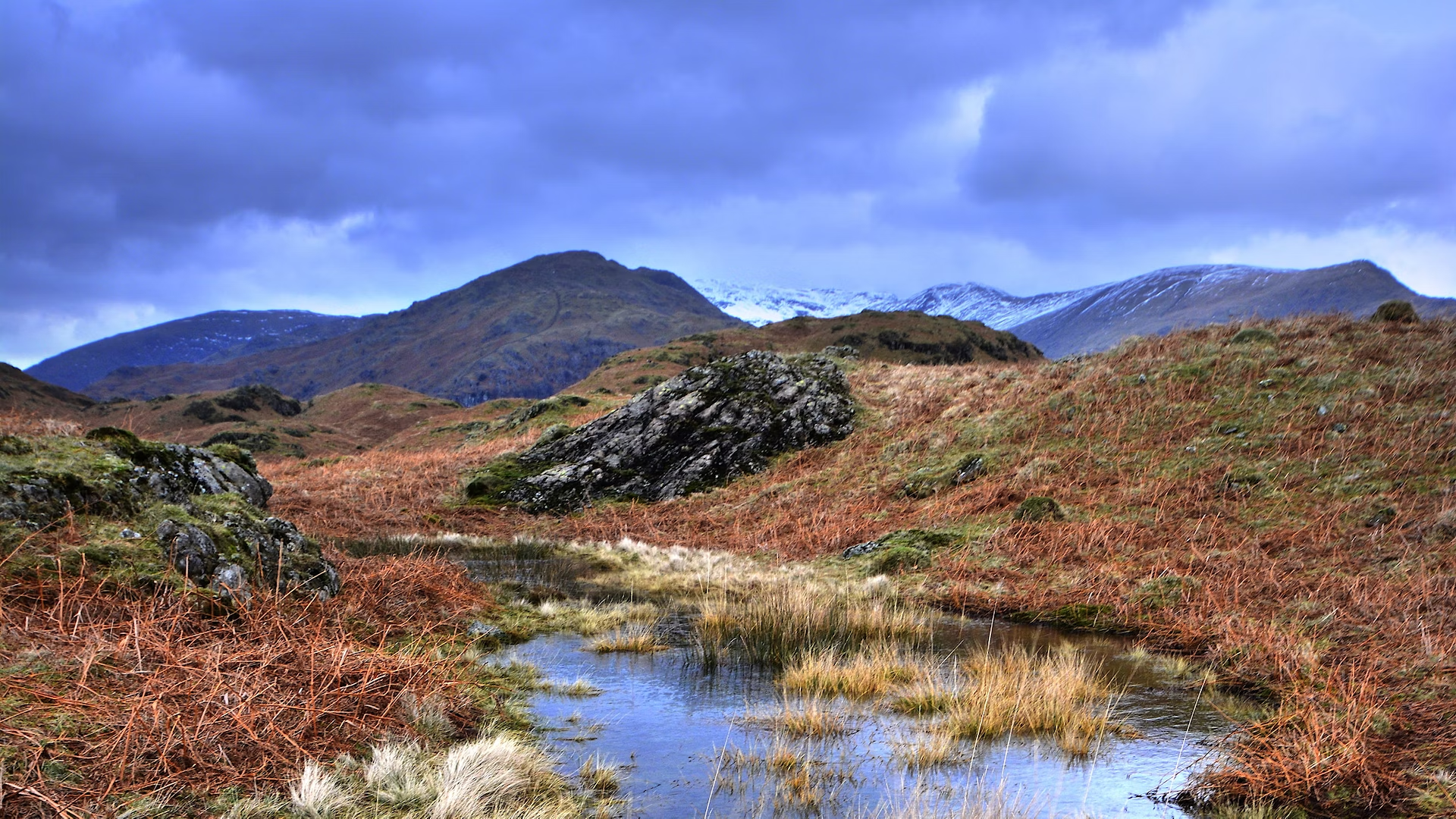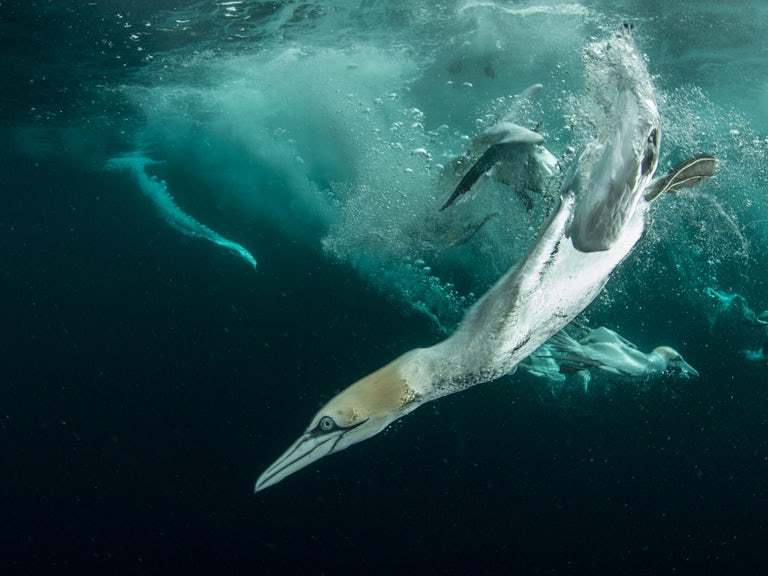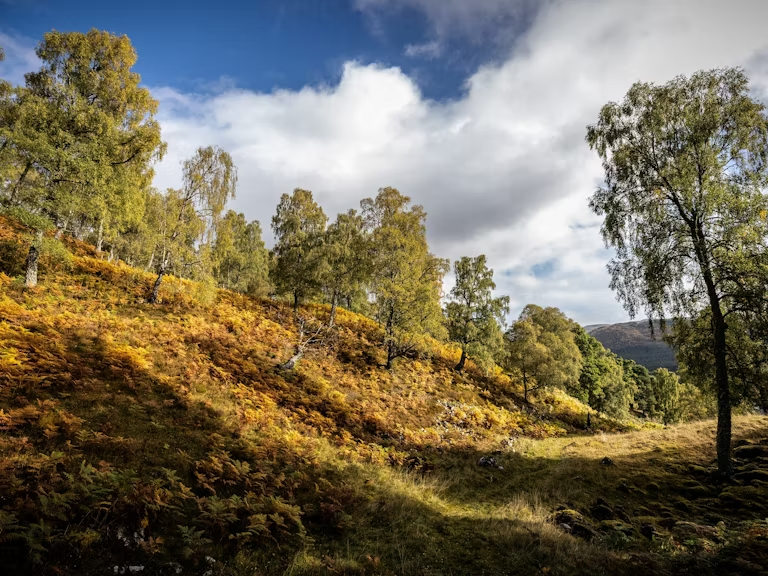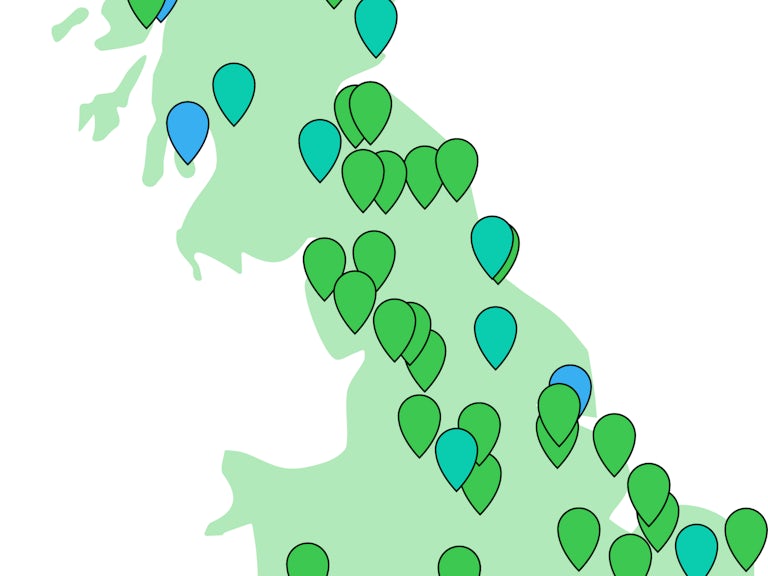Influencing policy and practice
We challenge decision makers and landowners to change laws, policies and practice to allow rewilding to restore our land and seas.

When we launched in 2015, rewilding generated controversy and provoked polarised debate across the country. Governments wouldn’t openly accept a role for rewilding in land and marine management and conservation organisations rarely used the word in public, or acknowledged they were considering it on their land.
“Rewilding Britain is a fantastic influence on the national debate around rewilding”
Lord Goldsmith
At Rewilding Britain we adopted an unapologetic, multi-track approach to establish the concept – and to get the word rewilding into wide public use. Our petitions have sparked parliamentary debates and today rewilding features in legislation and regularly hits national news.
We publish research into the positive impact of rewilding — on flooding, on carbon capture, on enriching habitats — push on closed doors and claim a seat at the top tables, inspiring a groundswell of interest and support from enthusiasts who want to start rewilding.
Our influencing strategy
- We work with, advise and influence with Members of Parliament, the National Assembly for Wales/Senedd and the Scottish Parliament and other bodies to mainstream rewilding in key policies and investment decisions.
- We write briefings for debates and parliamentary questions and commission reports showcasing rewilding benefits.
- We respond to consultations which influence land management decisions and attend targeted high-level meetings with key policy decision-makers.
How we’ve shaped policy
We’re proud of the impact we’ve had in making rewilding an accepted part of mainstream debate about the future of our land and seas.
Influencing the 25 Year Environment Plan
The Government published its 25 Year Environment plan. We got a mention to support restoring ecosystems, and it cited Knepp Estate as a prime example of lowland rewilding. This was the beginning of the ‘Public money for public goods’ policy change which is currently advancing with the Environmental Land Management consultation.
Securing climate investment
In 2019 we launched a petition calling on the UK Government to restore nature on a massive scale to help stop climate breakdown. The petition asked the government to draw millions of tonnes of CO2 out of the air through restoring, rewilding and protecting our environment. Within two months, 100,000 people had signed triggering a debate in parliament.
The October debate held with a key group of MPs engaged in enthusiastic discussion of rewilding and voted unanimously in favour. Lord Goldsmith confirmed that the government will double its spending in tackling climate change in the period 2021 – 2026, with a large focus on natural climate solutions.
Presenting climate evidence
Our report ‘How restoring nature can help decarbonise the UK’ demonstrates how rewilding and other natural climate solutions can draw millions of tonnes of carbon from the atmosphere. Evidence suggests that natural solutions could provide over a third of the greenhouse gas mitigation required globally by 2030. Yet, only 2.5% of funding for mitigation has been committed.
In advance of the UK Government’s debate, we presented MPs and key organisations with our report, showing why certain habitats should be restored and how much it would cost, using carbon markets to finance it.
Influencing the Nature for Climate Fund
The Government announced the £640M Nature for Climate Fund, which was set up to deliver exactly what we were calling for in our decarbonising report. Lord Goldsmith confirmed to Rewilding Britain that our petition and debate created a major difference in rewilding awareness for restoring nature in the UK, helping to secure this fund.
Getting rewilding included in ELM
We played a key role in influencing other bodies to include rewilding in their response to the ELM consultation. Working closely with Wildlife and Countryside Link, we helped them place the right emphasis on rewilding in their response to Defra’s ELM consultation. Other like-minded organisations such as Heal Rewilding along with some major landowners, also followed our lead and submitted comprehensive responses calling for the inclusion of rewilding in ELM.
Mainstreaming rewilding into government policy
We’ve worked closely with landowners to collate evidence on why rewilding should be included in the Environmental Land Management (ELM) scheme. We’ve also rallied people to support our call for rewilding to be a specific option in the future.
As a direct result of our communication with selected members of the House of Lords, the House held a discussion on rewilding during their second reading of the Agriculture Bill. This centered around an amendment proposed by Lord Greaves to specifically mention rewilding in the Bill as one of the activities which could be funded under the future ELM scheme. Many members spoke during the discussion and there was plenty of support for the Rewilding Britain definition and principles, which were quoted by Lord Greaves.
A keynote speech given by Lord Goldsmith entitled ‘A green recovery’, summarised the need for UK leadership on nature and climate as we set out our priorities for restoring the natural world in post-Covid economic recovery.
In that speech, Goldsmith discussed the government’s intentions to mainstream rewilding, and even more so with a direct acknowledgement to Rewilding Britain. He went on to confirm that (i) he expects the Nature for Climate fund “to place a lot of importance on rewilding” (ii) that he expects there to be “a recognition of the value of rewilding in ELM” and (iii) that the government is now “looking very closely at delivering a riparian programme – ie rewilding and planting etc either side of waterways, to help create an informal nature network across the country”.
Calling on the Scottish Government to relocate beavers
As part of the Scottish Rewilding Alliance, we called on the Scottish Government to initiate a programme to relocate protected beavers to suitable habitat outside the existing beaver range. The petition aimed to help minimise the need to kill these wetland wonders in conflict areas. It was the Scottish Parliament’s most signed petition in 11 years. In November 2021 Scotland saw its first ever translocation of a family of beavers, following a court case win by Trees for Life.
Shaping woodland strategy
Rewilding Britain supports the need for and articulation of an England Tree Strategy. In 2020 we responded to the consultation on this, asking for the UK Government to:
- Double woodland cover to at least 26% by 2030 for the benefit of people, nature and climate.
- Support natural regeneration as the default approach.
- Raise and integrate investment in woodland regeneration from public and private financing.
We also encouraged our supporters to do the same and had overwhelmingly positive responses. Thank you.
Pushing for wilder national parks
We launched a petition for wilder national parks, which 50,000+ people signed and we presented to Defra. We’ve made our voice heard loud and clear in the policy world. We’ve contributed to the UK Government’s nature consultations and the Scottish Government’s consultation on the future for national parks in Scotland, and have submitted responses to regional National Park Authority consultations. We continue to support pioneering members of the Rewilding Network in their pursuit of nature recovery across Britain, including seven within national parks.


Rewild your inbox
Wise up with the latest rewilding news, tips and events in our newsletter.
Sign up now
Rewilding 101
Start here to learn all about rewilding, what it looks like and what it can do.
Why rewild
The Rewilding Network
The Rewilding Network is the go-to place for projects across Britain to connect, share and make rewilding happen on land and sea.
Discover the Rewilding Network